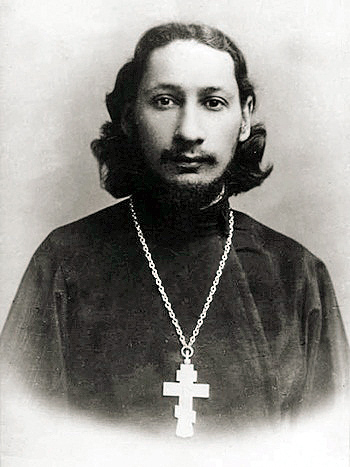I also noticed that in the chapter on "Gehenna" he talks about the final judgment being a surgery and separation of evil character and the person. It seemed very similar to Oliver Clements quote from St Ambrose about all men being both saved and damned and Fr bulgakovs view that the separation between the sheep and goats takes place within each man. I'm still not sure I understand exactly what this implies and if anyone could help me out I would appreciate it. This could possibly solve the conundrum I have regarding everlasting punishment if I could properly understand what this means I think.
Here are some quotes that touch on this:
"But a creature of God is a person and must be saved. An evil character is precisely what prevents a person from being saved. It is therefore clear that salvation postulates a separation between person and character. What is one must become disparate. How does this come about? In the same way that trine is one God. In essence one, I splits apart; that is, remaining one, I stop being I. Psychologically, this means that a person evil will, manifested in the lusts and pride of the character, is separated from the person himself. This will thus acquires an independent non-substantial position in being and is absolute nothing 'for another' (according to the mode 'thou' which is the metaphysical synthesis of the 'I' and 'He' of the fragmented person). In other words , the essentially holy 'in itself' of a person ( according to the mode of 'He') is separated from the person's 'for itself' (according tot he mode of 'I') insofar as the later is evil.....
In itself, the wicked and wrathful 'for itself' is perpetual agony, the unceasing, impotent attempt to leave the state of naked selfhood (on 'for itself'). This 'for itself' therefore burns ceaselessly in the inextinguishable flames of hate. This is one of the aspects of the wicked self perception of creation, a living picture frozen in its subject less illusioness. It is the empty self-identity of "I" which can not transcend a single eternal moment of sin, torment, and fury directed at God, at one's own impotence, a single moment of insane epoche, which has become an eternity. It is an eternal exertion demonstrating powerlessness, and is is the powerlessness to make any exertion. Earthly epocke still has a creative character, but epoche after death is absolutely passive. On the other hand the good 'in itself' is an eternally beautiful object of contemplation for another. It is part of another, insofar as this other is good also for itself, ie., capable of contemplating another's good. For one who loves transforms all that he loves into himself, while one who hates loses even what he has.....
In this separation, neither the freedom nor the Divine image of man is annihilated. They are only disunited. But an evil character, who absolutely does not have the aspect of "Thou," absolutely dos not exist for God and for the righteous. No one is 'thou' for whom no one is 'Thou'. Such a one is pure illusion, an illusion that exists only for himself, and a snake bitting its own tail can serve as his symbol...
The proposed solution, which is essentially grounded in the distinction in the person between the 'image of God' and the 'likeness of God,' was , as it turns out , expounded in a generally accessible way be a certain Syrian slave. The well known Protestant missionary Lord Redstock related it in one of his Moscow talks of 1877: ' I remember that once in Syria I saw three elders of a certain village who, while sitting in the shade of palm trees in the evening, where discussing the boundlessness of Gods justice and mercy. 'How is it?' , they asked. 'If God is merciful, he will forgive the sinner all his sins. If He is just, He will punish the sinner without mercy.' Then a slave came up to them and asked for permission to give his opinion. 'I think,' he said, 'that God in His justice will punish and destroy sin, while in His mercy, he will forgive the sinner.'
The mysterious process of God's judgment is a separation, a cutting off, an isolating. Such first of all, is sacrament. No sacrament makes sin non-sin; God does not justify untruth. But sacrament cuts off the sinful part of the soul and represent it, to the recipient of the sacrament, objectively as nothing (as 'covered') and subjectively as self enclosed evil, directed at itself, as a serpent biting its tail. That is the way the Devil is depicted on ancient pictures of the last judgment. sin becomes an independent act separated from he sinner and directed at itself. Sins action upon everything external is equal to absolute zero. In the sacrament of repentance, the words of the Psalm are made real for : "As far as the east is from the west, so far hath he removed our transgressions for us'. All the forces of sin, cut off by repentance ; by sacrament "the past is destroyed, ta prota exaleiphetai. Here, exaleipho properly sginifies " I wipe away', ' I scratch out,' 'I scrape out'. "
He develops this theme a lot more but I tire of typing. I would really like to understand exactly what he meant in this chapter.


